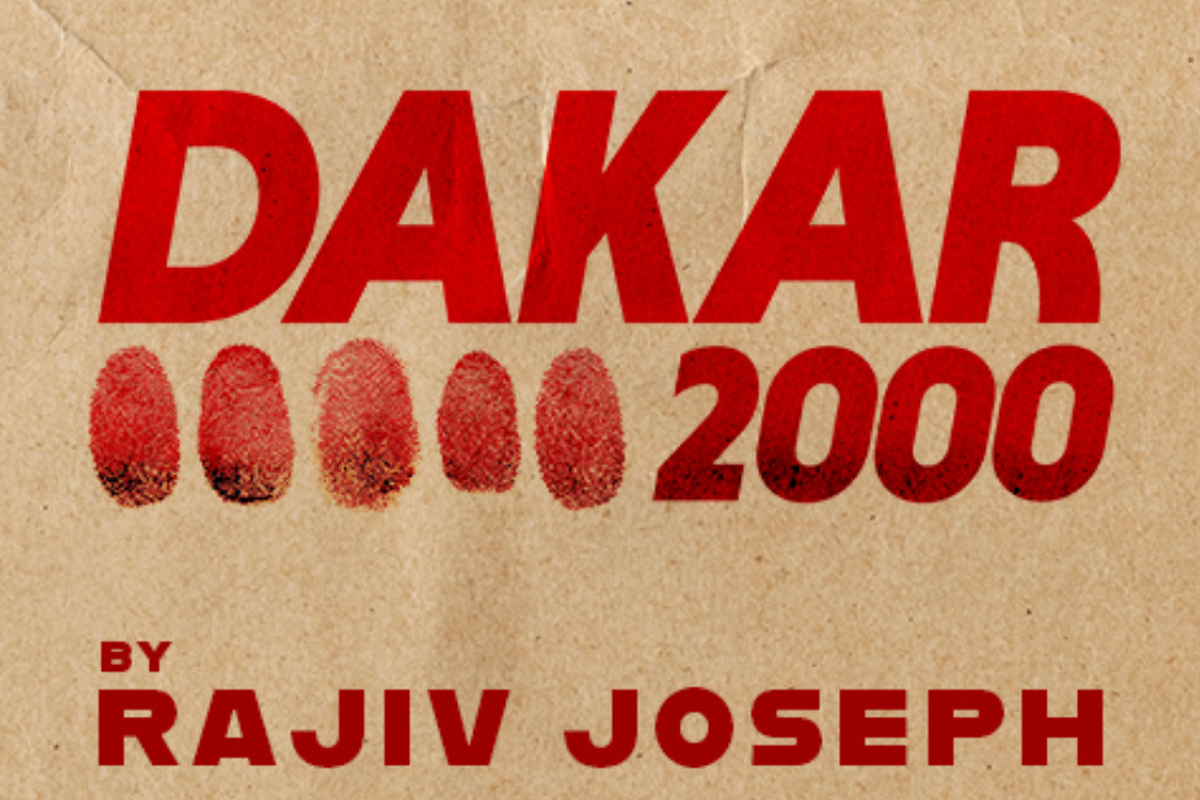Review Roundup: DAKAR 2000 Manhattan Theatre Club World Premiere
DAKAR 2000 is running now at New York City Center.
The Manhattan Theatre Club world premiere of Dakar 2000, written by Pulitzer Prize finalist and two-time Obie Award winner Rajiv Joseph and directed by May Adrales, begins performances tonight at New York City Center. Read the reviews!
The production stars Abubakr Ali (Film: Anything’s Possible; Television: “Law & Order: Organized Crime,” “Walking Dead: World Beyond”) and Lucille Lortel and Obie Award winner Mia Barron (Off-Broadway: The Coast Starlight, Hurricane Diane).
In Senegal on the eve of Y2K, an idealistic Peace Corps volunteer (Ali) survives a mysterious car accident. An imposing State Department operative (Barron) arrives at his hospital where she immediately takes command of the situation and his safety. Though they couldn’t be more different, they form an unlikely relationship. But when it becomes clear that they both have secrets, the volunteer is roped into a darker side of public service – one he can’t come back from. Unpredictable at every turn, this world-premiere thriller was commissioned by Manhattan Theatre Club.
The design team includes Tim Mackabee (Scenic Design), Emily Rebholz (Costume Design), Alan C. Edwards (Lighting Design), Bray Poor (Sound Design), Shawn Duan (Projection Design), Tommy Kurzman (Hair and Make-up Design), and Merrick A.B. Williams (Production Stage Manager).
![]() Elisabeth Vincentelli, The New York Times: Instead of capitalizing on that loaded context, though, the play gradually deflates, unable to maximize its own premise and hampered by possibly self-serving moves — a raised eyebrow is the only possible reaction to the improbable notion that Boubs could manipulate the worldlier, more experienced Dina into getting what he needs.
Elisabeth Vincentelli, The New York Times: Instead of capitalizing on that loaded context, though, the play gradually deflates, unable to maximize its own premise and hampered by possibly self-serving moves — a raised eyebrow is the only possible reaction to the improbable notion that Boubs could manipulate the worldlier, more experienced Dina into getting what he needs.
![]() Jackson McHenry, Vulture: Yet Dakar 2000 doesn’t accelerate from there. Joseph works additively, tacking on new ideas about Dina and Boubs’s dynamic, then explores them incompletely. Dina’s backstory, for instance, involves the bombing of the U.S. embassy in Tanzania in 1998. She’s become obsessed with the threat of Islamic terror and her own quest for revenge. But because Joseph has placed his drama at such a specific historical spot — a year before 9/11 — it’s as if it’s hermetically sealed. He can only hint at how Dina’s perspective would soon become the standard posture of American diplomacy.
Jackson McHenry, Vulture: Yet Dakar 2000 doesn’t accelerate from there. Joseph works additively, tacking on new ideas about Dina and Boubs’s dynamic, then explores them incompletely. Dina’s backstory, for instance, involves the bombing of the U.S. embassy in Tanzania in 1998. She’s become obsessed with the threat of Islamic terror and her own quest for revenge. But because Joseph has placed his drama at such a specific historical spot — a year before 9/11 — it’s as if it’s hermetically sealed. He can only hint at how Dina’s perspective would soon become the standard posture of American diplomacy.
![]() Amelia Merrill, New York Theatre Guide: Dakar 2000’s plot, however, is gripping enough to make up for any shortcomings in character development. The script’s revelations trickle down in spurts before converging in an all-out flood of manipulation. 'You can’t like someone AND manipulate them!' Boubs screeches at one point, heartbroken to think he was just a pawn in Dina’s game. 'Yes, you can,' Dina insists. Joseph’s exploration of the cost of trying to be a good person reminds us no character is simply a hero or a villain.
Amelia Merrill, New York Theatre Guide: Dakar 2000’s plot, however, is gripping enough to make up for any shortcomings in character development. The script’s revelations trickle down in spurts before converging in an all-out flood of manipulation. 'You can’t like someone AND manipulate them!' Boubs screeches at one point, heartbroken to think he was just a pawn in Dina’s game. 'Yes, you can,' Dina insists. Joseph’s exploration of the cost of trying to be a good person reminds us no character is simply a hero or a villain.
![]() Melissa Rose Bernardo, New York Stage Review: What we will reveal: Ali and Barron have terrific chemistry (don’t be surprised if you find yourself cheering for them to kiss on the roof!); and director May Adrales stages a genuine jump-in-your-seat moment, aided by Alan C. Edwards’ unnerving lighting design, that you’ll be thinking about for days.
Melissa Rose Bernardo, New York Stage Review: What we will reveal: Ali and Barron have terrific chemistry (don’t be surprised if you find yourself cheering for them to kiss on the roof!); and director May Adrales stages a genuine jump-in-your-seat moment, aided by Alan C. Edwards’ unnerving lighting design, that you’ll be thinking about for days.
Average Rating: 62.5%
Reader Reviews





